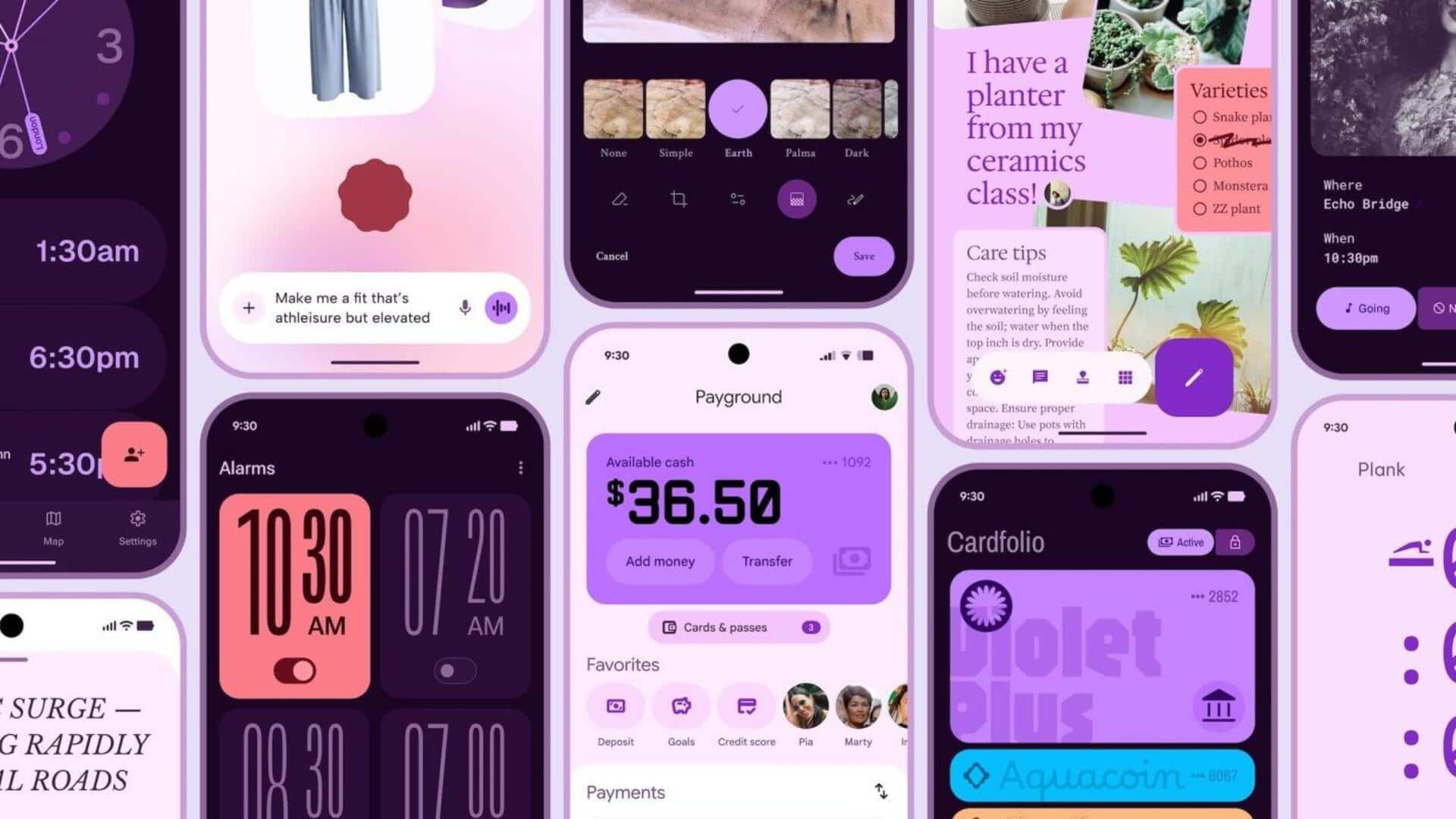
Google just accidentally revealed Android's new design language
What's the story
Google is all set to unveil its latest Android design language, "Material Design 3 Expressive," at the upcoming Google I/O developer conference. The announcement came via an event schedule on Google's website and a mistakenly published blog, revealing the highlights of new Android design language. The upcoming design system will focus on creating interfaces that resonate with users on an emotional level, greatly influencing how app developers tailor experiences for their audience.
Design evolution
Material 3 Expressive: A bold step forward
Material Design, Google's open-source design system launched in 2014, has played a key role in defining user interfaces for Android apps. The system's biggest overhaul came in May 2021 with "Material You" (aka Material 3), providing an adaptive interface to personalize Android. The leaked information suggests that Material 3 Expressive emphasizes a bolder approach to visual elements. Color, shape, and motion are set to play more prominent roles in guiding user attention and creating memorable interactions.
Usability focus
Expressive design: A user-centric approach
The leaked blog post highlighted the research behind this update, noting that users prefer a more expressive design that improves usability. Such a design highlights key elements and important user actions, resulting in "significant gains in performance." Google also said such a design makes using apps easier for older adults, basically leveling the playing field for all users. However, it also warned expressive design isn't necessarily a "one-size fits all solution."
Conference preview
Google I/O 2025: A platform for developers
The I/O session titled "Build next-level UX with Material 3 Expressive" suggests Google is gearing up to unveil the refreshed design system later this month. As per the session's description, developers at I/O will learn to use "new emotional design patterns" to boost engagement, usability, and desire for their product. The company also plans on sharing files and alpha code then, allowing developers to start experimenting with the changes ahead of a public release.